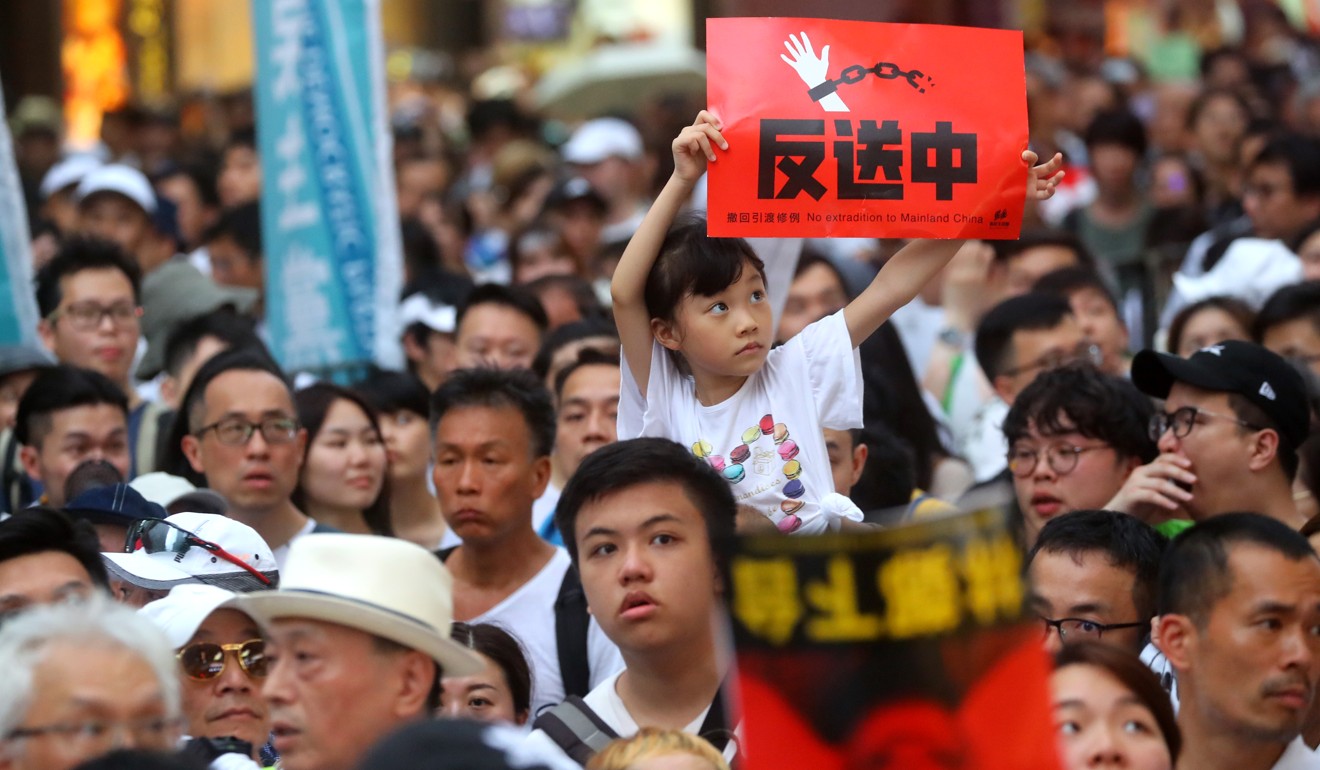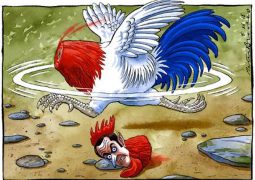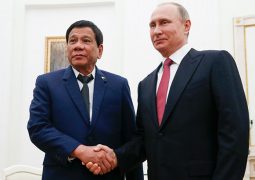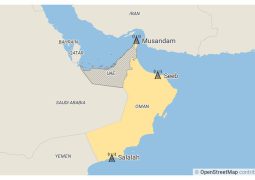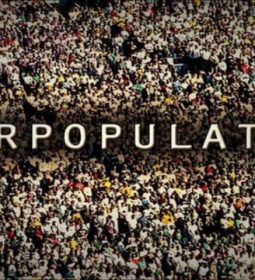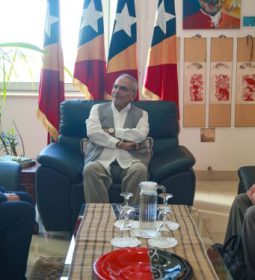Hong Kong: more protests loom over extradition bill
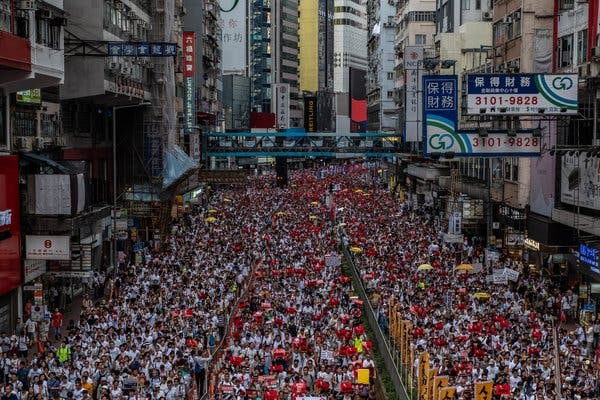
Tensions in Hong Kong on rise as city’s leader Carrie Lam gets death threats and more protests loom over extradition bill
- City prepares for demonstrations, strikes and more turmoil as Legco resumes debating controversial bill
- Death threats from unknown number of people against chief executive, the justice secretary and their families
The citywide tension was punctuated by death threats against Chief Executive Carrie Lam Cheng Yuet-ngor from an unknown number of persons who vowed to kill the city’s leader, the justice secretary and their families if the extradition bill was not withdrawn within 24 hours. Police were investigating the threats.
But warnings also emerged as wide swathes of Hong Kong society – from professionals to students to airline workers – finalised plans to take action before, during and after the second reading of the bill on Wednesday at the Legislative Council. Late on Tuesday, groups had begun gathering near the building and around Admiralty MTR station.
Lam urged schools, businesses and unions to think twice before going on strike in protest against the legislation, cautioning that it would put the future of young people on the line.
“I hope schools, parents, organisations, businesses and unions consider things thoroughly before advocating any radical actions,” she said. “What good would it do to Hong Kong society and our young people?”

As the city’s legislature and administrative headquarters tightened security measures and the police deployed 5,000 officers overnight, the Catholic diocese and the head of the Anglican Church in Hong Kong, Archbishop Paul Kwong, also issued statements urging the government and the public to show restraint.
From the social welfare sector, more than 2,000 counsellors, carers and therapists representing 50 civic welfare organisations and religious groups said they planned to take part in a general strike on Wednesday. “We have been forced to take a stand on this moral question of right and wrong, and to stand up for our core values as social workers,” said Fernando Cheung Chiu-hung, a lawmaker and strike organiser.
The Hong Kong Professional Teachers’ Union (PTU), the city’s biggest teachers’ union, on Tuesday called on members to attend a protest at Legco on Wednesday after school hours. The union asked school managers to be “flexible” if teachers wanted to join the rally during the day.

Fung Wai-wah, the PTU president, said the union would discuss the possibility of a strike because “the clear message we got from teachers is the government must withdraw or at least shelve the bill”.
One of several teachers’ petitions circulating online in support of a strike called on professional responsibility.
“As professional educators, it is our duty to cultivate students’ awareness about freedom, peace, equality, sensibility and democracy,” the petition said.
Earlier, more than 100 restaurants, stores and businesses said they would close down on Wednesday to allow workers to join the demonstration Legco.
Opposition to the extradition agreement has been snowballing ever since it was announced in February. The plan would allow the transfer of fugitives to jurisdictions with which Hong Kong lacks an extradition deal, including the mainland. Domestic and international concerns have been expressed about the possibility of politically motivated persecution and the lack of fair trials in the mainland.
On Sunday, more than 1 million people took part in a mass protest, according to organisers. Police put the crowd size however at 240,000.

Despite the display of defiance, Lam has stood firm, insisting again on Tuesday the need to press on with the bill. She pointed to the late-night violence after the Sunday march, when police arrested 19 people for unlawful assembly and detained and searched hundreds. Officers said as many as 358 protesters, mostly younger than 25, faced possible arrest for taking part in the violence.
“It is something I would not want to see as the city’s leader and a mother of two,” Lam added.
Lam’s allies, the pro-Beijing camp, reiterated its backing of the extradition bill on Tuesday, with a lawyer’s group and four Chinese business associations in Hong Kong – Chinese Enterprises Association (CEA), Chinese Banking Association, Chinese Securities Association and Chinese Asset Management Association – condemning the “violent acts” that took place after the mass protest on Sunday.
Secretary for Education Kevin Yeung Yun-hung met with school principals and managers on Tuesday to understand how the city’s schools would be affected by more turmoil and a possible strike.
Amid the hive of plans to protest, Legco president Andrew Leung Kwan-yuen provoked more fury among pan-democrat lawmakers when he announced the bill could be passed as soon as next Thursday as he was allotting only 61 hours for legislators to debate the legislation.
The Civil Human Rights Front, the group that organised Sunday’s march, called on protesters to “surround the Legislative Council” starting from Wednesday. And from Monday onwards, it asked protesters to go on a general strike and not show up for work or school.
Shrugging off the calls, pro-government Liberal Party lawmaker Felix Chung Kwok-pan said the strike would not harm the government’s position and could just hit businesses in the pocket.
“I can’t see any actual outcomes from the strike action,” he told a radio show on Tuesday morning. “It will not affect the government but could hurt your own interests.”
Chung also suggested that to win over the public, the government could pass the bill but promptly put it aside. It could then focus on reaching a long-term extradition agreement with jurisdictions such as the mainland, he said, rather than the ad hoc arrangement in the proposed bill.

Hong Kong police, meanwhile, deployed officers to Admiralty on Tuesday where hundreds of protesters had gathered outside government headquarters ahead of the lawmakers’ meeting on Wednesday.
At the Admiralty MTR station, dozens of police officers were seen stopping passers-by and searching their bags. Many reacted angrily, accusing police of overstepping their authority.
The extradition dispute also marred a soccer match between Hong Kong and Taiwan at Mong Kok Stadium on Tuesday night as fans booed the national anthem and raised a banner reading “No Extradition; Bad Law ”.
The jeers came despite a large police presence at the match, while organisers turned the PA system on high volume to drown out the boos.
Among the groups that counselled calm on Tuesday was the Catholic diocese, which issued a statement urging the government and the public to use peaceful means to find a solution to the impasse.
“We urge the [Hong Kong government] not to rush to amend the fugitive bill before fully responding to the concerns of the legal sector and the public,” a statement read.
The church also asked all Christians to pray for the city.
- Previous China’s rise means the decline of Hong Kong
- Next Intel: Why Turkey’s transfer of Muslim bloc leadership to Saudis was so uncomfortable



